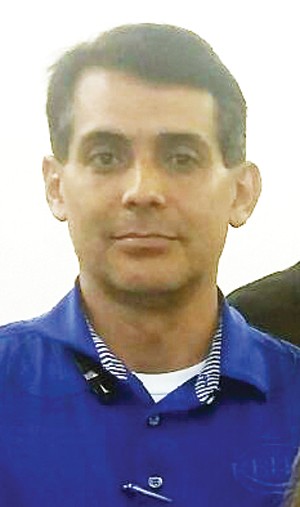Sandoval tax cases move through court

CONEJOS — Tax evasion charges brought against Conejos County Commissioner John Sandoval have moved through several hearings before Denver District Judge A. Bruce Jones, with a disposition hearing planned at 8:30 a.m. March 28, according to court records.
Sandoval, 53, was indicted June 1, 2018 by a Statewide Grand Jury on three tax charges and one count of theft over $5,000. He has entered pleas of not guilty to each of those counts.
“The Attorney General’s Office has pursued a criminal case against me — something I remain committed to fighting,” Sandoval said.
He has been a member of the Conejos Board of County Commissioners for more than 18 years.
The charges relate to a period between June 7, 2012 and Oct. 15, 2016. Sandoval was arraigned in October and filed a motion for dismissal upon his appearance Oct. 19, 2016 in U.S. District Court, Denver. A hearing on that motion was continued. Sandoval quoted Judge Jones as saying there was too much material to review in order to make a determination.
Hearings and dispositions have been scheduled and continued, with a review slated Feb. 19 vacated by the judge and a jury trial set to begin March 4 also vacated.
Disposition and motions hearings were set March 28 and 29. He is free on a $5,000 surety bond.
Count one alleges Sandoval evaded taxes administered by the Colorado Department of Revenue.
The indictment states that evidence was developed by the Statewide Grand Jury alleging Sandoval earned additional income in the State of Colorado during the 2012-2015 tax years that was not accounted for and/or declared when his state income tax returns were prepared and filed under the penalties of perjury with the Colorado Department of Revenue (CDOR).
Count two alleges Sandoval failed to collect, account for or pay over any tax authorized by state statute.
The indictment alleges the sources of Sandoval’s additional, undeclared income included, but was not limited to, various checks that he received from hay baling work or hay sales he conducted and from a restaurant in Antonito that was owned and operated by Sandoval who, as owner, was required to collect and remit state and local sales tax to the Colorado Department of Revenue.
Sandoval no longer owns the business.
Further evidence reported by the grand jury alleged Sandoval did not fully collect, account for and/ or remit the proper sales tax from his restaurant, based on the record of transactions that was obtained by the Grand Jury, permitting a comparison of the actual sales that occurred at his business versus what was reported.
For example, investigators identified a bank account for the business owned and operated by Sandoval that showed bank deposits greater than the amounts listed as gross sales on the reported sales tax returns.
Count three alleges Sandoval filed a false tax return and count four alleges theft.
The indictment states, in the end, a reasonable inference can be drawn that sales tax funds, in excess of$5,000.00 but less than $20,000.00, from the 2012, 2013, 2014 and 2015 tax years, that were supposed to be held in trust by Sandoval and payable to both the State of Colorado and the Town of Antonito were taken and converted by Sandoval instead of being remitted to the designated recipients.
Sandoval points to political opposition as the reason for the investigation that led to the indictments.
During the summer of 2017, he heard that the Colorado Attorney General was investigating the same allegations. Sandoval said, after going through more than 30,000 pages of documents, the attorney general cleared him of any and all wrongdoing as a county commissioner.
So the next target was his personal life, Sandoval said, maintaining that he will do whatever is best for his family but is committed to fighting the charges.
“Part of the investigation included looking at my tax records. I previously owned a restaurant and bar that employed 25 of our county citizens and the state disagrees with amounts declared between 2012 and 2017.”
He said some years, investigators said he did not pay enough taxes and paid too much in others.



